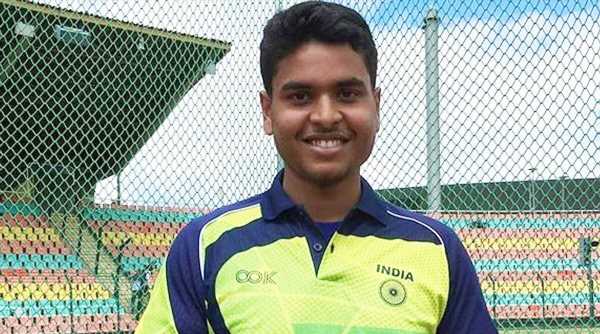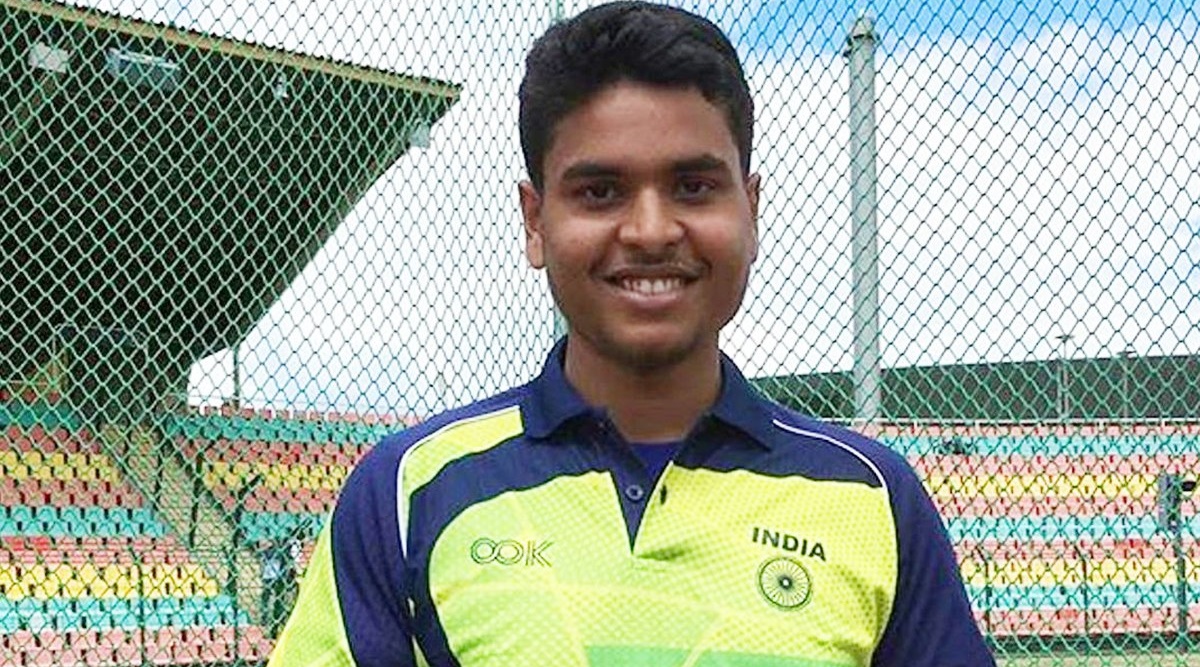On Monday, Yogesh Kathuniya – in his wheelchair – won the silver medal in the F56 category discus throw event at the Tokyo Paralympics.
Meena Devi still remembers the days when she would tie her youngest son Yogesh Kathuniya to the pillion seat of her Scooty to get him treated at the Chandimandir Military Station Army Hospital. It was the same when she went to consult doctors at the PGIMER in Chandigarh in 2006 on Yogesh’s medical condition – Guillain-Barre syndrome, a rare neurological disorder.
While the then seven-year-old Yogesh was suffering from paralysis, it was due to his mother’s constant efforts and physiotherapy which resulted in Yogesh making a partial recovery.
On Monday, as Yogesh – in his wheelchair – won the silver medal in the F56 category discus throw event at the Tokyo Paralympics, Meena recalled those unique journeys on her Scooty.
“While the doctors at the Command Hospital at Chandimandir said they couldn’t see Yogesh walking in the future, I didn’t believe that. For more than two years, I would tie him with a cloth on my Scooty and take him for physiotherapy sessions at Command Hospital and PGIMER. To see Yogesh win the silver medal in Tokyo while tied with a strap to the wheelchair made me remember all those hard days. The silver is worth more than gold for us,” Meena told The Indian Express.
In Tokyo on Monday, Yogesh made a best throw of 44.38m to claim the silver medal behind Batista Santos of Brazil (45.59m). His earlier throw of 42.84m had ensured a medal.
Yogesh’s father Gian Chand was posted in the technical wing of the Chandimandir Military Station workshop. The Young Yogesh was a naughty child at Army Public School, Chandigarh before being diagnosed with the GB Syndrome, which left him paralysed in the whole body.
The ailment sees the body’s immune system mistakenly attacking the nervous system and resulting in muscle weakness. Doctors at the Command Hospital were non-committal about the chances of improvement in Yogesh’s condition.
“Yogesh was a very naughty child and never sat idle. But on that day in 2006, his whole body just became paralysed and we rushed him to the Command Hospital. When the doctors told us about the syndrome and said that they cannot see him standing on his feet, we were devastated. But my wife did not lose hope,” says Chand, who is now based in Ballabhgarh in Haryana.
No stone left unturned
When the family shifted to Delhi, where Chand was transferred, Meena would make all efforts to seek treatment for her son. Apart from multiple visits to the Base Hospital, she would also seek advice and treatment from local massage specialists in Rajasthan and Uttar Pradesh. “Apart from the Army hospitals, I would also travel to places like Agra, Meerut, and Jaipur when somebody told me to get Yogesh massaged from a local masseur. I remember once I spent more than 20 days at a famous massage specialist in a village on the Jaipur-Jodhpur highway in the sweltering June heat. I also learnt physiotherapy and when Yogesh recovered, the same doctors at Base Hospital told me that it’s a miracle,” remembers Meena.
When Yogesh‘s condition improved and he was able to walk with the help of plastic support, he would get admission in Kirori Mal college in Delhi, where he met athlete Sachin Yadav. Yadav advised him to train in para sports and with Asian medallist Neeraj Yadav helping the youngster, Yogesh would enroll first under coach Satya Pal before shifting to train under Dronacharya awardee Naval Singh at the Jawaharlal Nehru Stadium.
“Initially, I would face some difficulty as I competed in standing events but later my classification changed and as I competed in a wheelchair, I learnt how to balance my body,” says Yogesh.
It was also the time when the family took financial help from Neeraj and other friends to support Yogesh’s first trip abroad. “Friends like Neeraj helped Yogesh and it’s their silver medal too,” says Meena.
Rapid rise
While Yogesh would finish fourth at the Asian Para Games in 2018, the first time he competed in the T-56 category, a bronze medal at the World Para Athletics Championship in 2019 was what made coach Naval Singh to consider the youngster as a medal prospect for Tokyo. He made some adjustments to Yogesh’s technique for the new classified category and latter kept improving. “Yogesh could not stand without plastic support and could not hold the discus properly due to his thumbs being bent. At first, we had to make adjustments to his belt and sitting position on the wheelchair before working on his throwing technique. Earlier, he used to push the body hard which resulted in fouls. But slowly, we worked on his upper body strength and flexibility in arms to provide speed to the discus,” says Naval.
Last year, Naval suffered from Covid-19 and tested positive for the virus again in May this year. So, he sent Yogesh to train under 2018 Asian Games silver medallist Virender Dhankar at Sonepat.
“Due to the lockdown, Yogesh had gained more than 15 Kgs. And it hampered his upper body movement while sitting strapped on the wheelchair. After working on his fitness, we worked on his spin, flexibility of the arms and use of forearms.”
The athlete believes he can improve on his effort in Tokyo. “I feel I could have thrown better. There was a lot of tail wind and I gave the discus more height to counter it,” says Yogesh, who idolises Vikas Gowda.
Mother Meena remembers Yogesh’s love for rasmalai and khichdi. “Bimar hone se pehle bhi 4-5 plate rasmalai kha jata tha aur abhi bhi yahi shauq hai (Before his ailment, he could eat 4-5 plates of rasmalai, and it’s the same now). But we have never complained and he can have as many rasmalais from the famous sweet shops of Ballabhgarh on his return,” she says.
Source: Read Full Article


